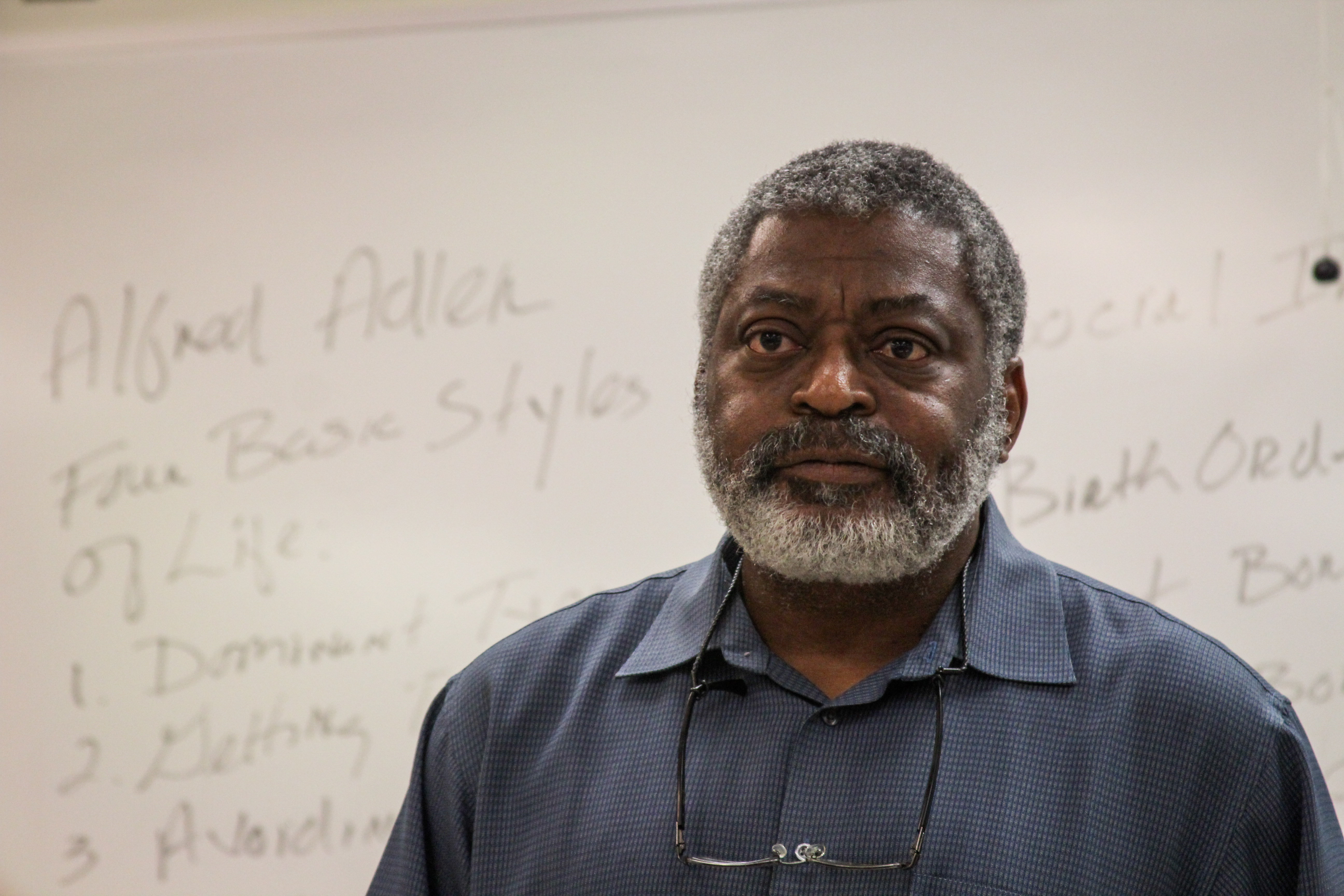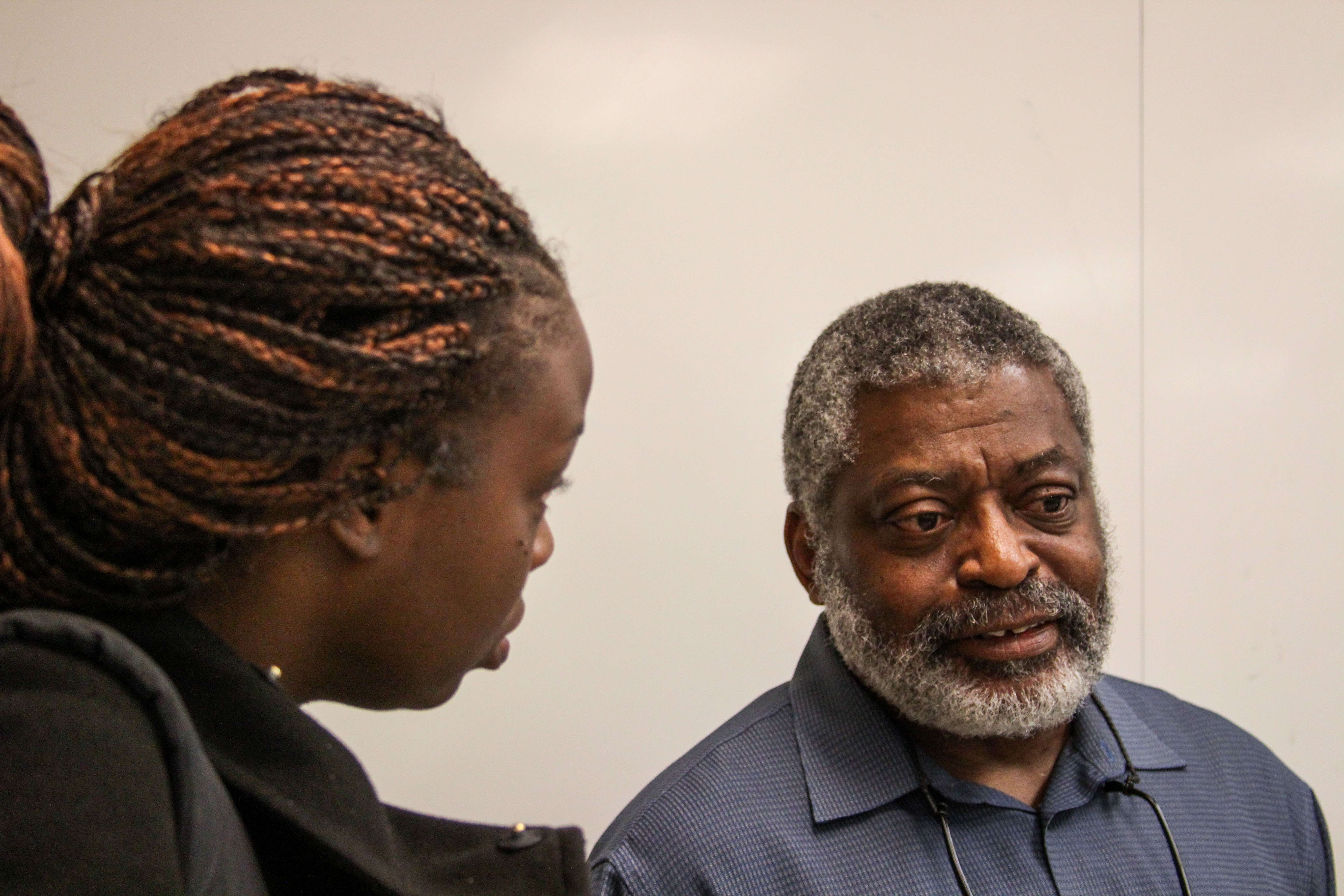A day late, a dollar short and it didn’t matter
By Elena Stuart
City College professor Terry Day grew up in the projects, has a learning disability and was a first generation college student.
“I tell students in my class… I have dyslexia… that I came from a single mother in the projects,” Day said. “It’s harder for African-Americans but many of us have come out of (bad) situations and achieved so much.”
Day holds a PhD in Social and Clinical Psychology. Most of his 40-year-career has been devoted to working with at risk youth.
He enjoys teaching young people and according to Behavioral Sciences Department Chair Jennifer Carlin-Dawgert the feeling is mutual: “Students love him.”
Day teaches psychological theories by relating them to students’ lives.
“Dr. Day is forcing me to think,” said City College student Pillon Lee . “He reminds me of a really cool coach. A psychology coach.”
Students new to behavioral sciences appreciate Day’s approach.
“He makes me look more into myself, my choices, my personality and how it affects others,” said student Rafael Hernandez . Another City College student, Steve Rivera, said he expected “a lot of roadblocks” but found Day’s instruction easy to comprehend.
Day connects class topics with personal experiences. Memories of racial profiling during segregation brought tears to his eyes.
When he was 5 years old Day, his mother, brother and sister took a bus to Florida to visit family. “I’m from Detroit but I have extended family in Florida because I was born there,” Day said.
On the way they stopped in Tennessee and passengers left the bus to get food at a cafe with Day and his brother following the crowd. “And we’re not noticing race or anything,” Day said.
His brother entered the cafe but before Day could follow his mother grabbed him and insisted to bring his brother back outside.
“As I walk in… you see all these faces staring at us.”
After getting his confused brother to leave the cafe they returned to the bus and a new passenger came on insisting Day was in his seat.
“This is the early 60s… blacks can sit anywhere on state buses,” Day said. “All of the frustration and anger my mama had, she just took it out on this white man. He’s turning red and saying you don’t know what you are. And she’s saying I don’t care what I am, this is my son’s seat.”
The bus driver told the man to back off but the incident frightened Day and his siblings.
Day used this story to explain the impact of early childhood trauma, “Once a child’s sense of safety is taken away you can never give it back and that was a thing truly lost for me and my siblings that day.”
Day also discloses the difficulties he faced as a student with a learning disability.
“I know that there are many students… dealing with so much shame and denigration. And when I tell them that I have a learning disability I can see that a burden gets relieved,” Day said. “There are many bright people that you might think are lazy and not motivated but really struggling with learning disabilities.”
Day did not blame individual teachers. “The structures of our institutions make it hard. Many students fall through the cracks.”
He was one of those students.
“I never got above a C average in high school,” Day said. “It would take me hours to read a chapter.”
College was about real, strenuous mental work for Day.
“I never thought I was smart. I was just determined and hot headed and focused.”
In graduate school Day kept putting off writing his dissertation until a colleague suggested Day might be dyslexic.
“I felt like I got slapped in the face,” Day said, but went to get tested anyways. “It turned out, yes, I was dyslexic.”
He understood his learning process differed from the norm and he was able to write his dissertation with some help.
Despite the limitations of dyslexia Day feels he gained from it. “I am both frustrated by and appreciative of it.” Adding that he thinks society should be more accommodating.
“We don’t fight for (disabled) students in an adequate, consistent, workable way,” Day said. “We’re not talking about giving people gifts, we’re just talking about supporting people in having a chance at a fair, decent life.”


